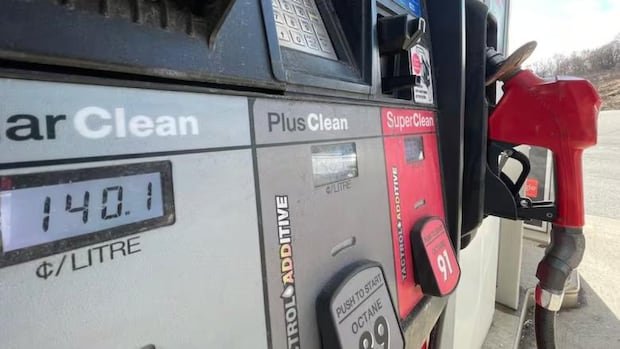After significant delays, New Brunswick Premier Susan Holt has reaffirmed her government’s dedication to fulfilling a promise made during the election to eliminate “carbon adjuster charges” on gasoline and diesel. The new deadline for scrapping the levy has been set for December.
Holt expressed her commitment to relieving New Brunswickers of the burden of the carbon adjuster charges, stating that the government will honor its pledge this year. Petroleum companies, who believed the government had abandoned the idea of ending the charges, have reacted with concern and caution, warning of potential “catastrophic” impacts on their businesses if the commitment is indeed genuine.
During an Energy and Utilities Board hearing held earlier this month to discuss petroleum wholesale margins, industry representatives appeared more alarmed by the resurgence of discussions around eliminating the carbon adjuster charges than by the trajectory of wholesale prices.
David Knight, representing various stations through the Canadian Energy Marketers Association and Convenience Industry Council of Canada, expressed surprise at the re-emergence of plans to cut adjuster charges. The carbon adjuster was initially introduced in 2023 by the former Progressive Conservative government to enable oil companies to pass on the costs of new federal environmental standards to consumers.
The adjuster charges are adjusted weekly based on a specific formula adopted by the New Brunswick Energy and Utilities Board. Currently, the charge for gasoline amounts to $3.11 (plus HST) on a 40-liter fill-up.
Last year, Holt, then the leader of the official opposition, criticized the adjuster as unjust to consumers, arguing that refineries should bear the expenses of complying with environmental standards. She engaged in multiple exchanges with former Premier Blaine Higgs, demanding a reversal of the policy.
Holt promised during last October’s election campaign that her government would immediately eliminate the adjuster charge from gas prices. However, after assuming office, the government hesitated and retained the charge. Subsequently, in June, legislative action was taken to end the adjuster levy, but its implementation has been postponed due to concerns raised during hearings regarding its impact on independent retailers and rural gas stations.
In August, Finance and Energy Minister René Legacy confirmed that the adjuster charge would be eliminated once new higher margins for both retail and wholesale sectors were established. The decision on higher gasoline margins has been announced, with the decision on wholesale margins still pending.
Industry participants foresee financial turmoil for operators if the carbon adjuster charges are eliminated, describing it as a potentially catastrophic change for the market. Irving Oil’s lawyer, James MacDuff, echoed these concerns, emphasizing the need for a substitute charge to prevent significant disruptions in the industry.
Carol Montreuil of the Canadian Fuels Association emphasized the competitive nature of the retail petroleum business, where even small price differences can impact businesses significantly. He cautioned that removing a revenue source of seven to eight cents could have dire consequences for many establishments.
Despite industry apprehensions, Holt reiterated her government’s commitment to ending the carbon adjuster charge, stating that the promise will be upheld to provide relief to New Brunswickers.


